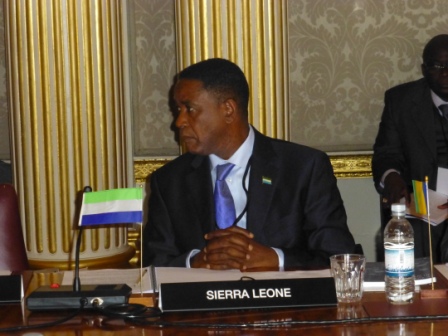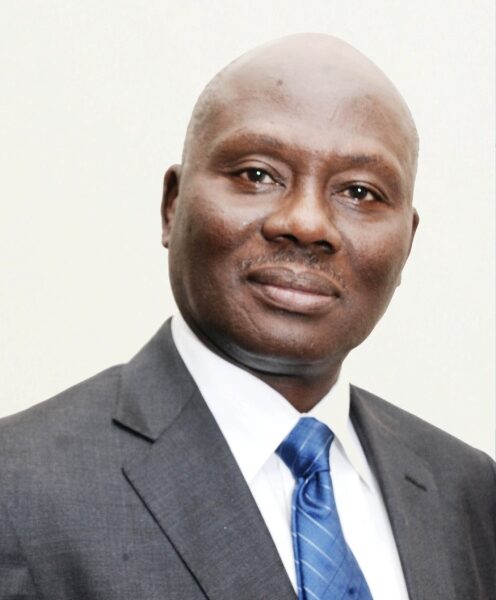Sierra Leone Corruption: How Ingrained?
For years now, what has been a primary impediment to the growth and development of Sierra Leone both as a state and nation is the entrenched corruption that cuts through every sphere of life in the country.
It is such that the purported fight against this thriving menace called corruption is almost unwinnable if the nation and state do not come to a consensus of going back to the drawing board and re-strategizing as to how to make an attack that will see success in the various areas of relevance in public and domestic corruption. This is more so important as it is a very key move analogous to the rescuing of our country from acute state of decadence and squalor that is synonymous to livelihood and sustenance in the country.
If one is to catalogue the level of entrenched corruption in Sierra Leone, one will definitely end up producing a massive clog of literature that will even hardly give an extensive coverage to the issue. This spells clear the fact that this dreadful social and economic syndrome called corruption is deep-rooted in the country’s daily hub-knobbing as much so that it is very difficult to completely live here in Sierra Leone and not yield to and or live with this contagion that has virtually married the state of affairs in the country as it is. Let give a little time to examine the area of police and judicial corruption in the country as time permits.
The law and judiciary is supposed to be the primary tool in providing answers to the acute state of corruption in the country, on the contrary though, these two sectors in the country are responsible for the spreading of the corruption bug in every grand way.
Whilst one might think that the law in Sierra Leone is meant to protect the people, the apt truth is that it is meant to demean and exploit the people it supposes to be protecting. This is much so that it has become a social norm for people preferring not to take their cases to the police when in trouble for fear that the police instead of helping will turn out exploiting them with no remorse. Most often than not, the disadvantaged people end up losing their cases right before the complaint is lodged with the police because the police will ask for money to help facilitate investigation and speed up the matter that they could not afford.
The poor and vulnerable folk in the country cannot in most cases afford what the police requests for and as such, if the offending party could pay, the case turns out the other way, killing justice right from the inception of a crime; a truly sad state of affairs. To such disadvantaged people, they would rather prefer acting on the advice of Jesus†saying that “when you are slapped on one side of the jaw, offer the other side to be slapped too,†other than seeking for justice that is not there.
Other similar and sickening state of affairs equally thrive in other areas of police intervention such as the traffic policing and the just established Family Support Unit of the Sierra Leone Police.
On my way to the office just before putting pen to paper on this topic, I benefitted from in simple terms what the Sierra Leon corruption actually is. Rush hour in the morning, a bus stocked with urgent commuters, some for work, and others for business and then there was a traffic police who has run broke over the weekend and is serious with his first catch to either send home some money or go eat breakfast.
He stopped the vehicle, slow but eager to inspect every aspect of the vehicle driver’s license, motor vehicle registration and insurance, tyres, number of passengers and the quantum of load as per vehicle specification. This obviously will take ages and faults as it may abound in our rather rickety bus whose driver knew how to the play the police game. He winked an eye to the conductor, and the conductor left for a street side shed and came out in a minute and half only for us to see our police officer dismissing all earlier claims of irregularities on the vehicle.
In my opinion, the police seemed like one that was doing his job and I also felt that it was high time we jumped into another vehicle as this particular one was due to answer for charges in court for the driver produced none of the documents the police requested for but the ‘shed magic’ worked and we were on our way with the conductor ever so ready to clear the way in similar terms.
I took some time to consider this little mystery that is so regularly solved on simple terms between drivers and the Sierra Leone Traffic Police. I actually marvelled at the organised state in such things take place.
I used this opportunity to venture into asking the bus driver how the magic works, why did he have to pay when paying such money to the police officer constitutes a crime-corruption. The response: “either way, I was going to pay, whether I had the documents or not and if I am charged to court, its the same money I will have to pay; so why not pay it now and let life go on.†The point is: it is very difficult to escape corruption and at times it feels comfortable to embrace it rather than run from it – nowhere to escape, nowhere to run.
The other day, a reporter of mine was investigating a case of alleged rape of an 11 year old wherein it was alleged that the parents of the child would not want the case to be charged to court on the grounds that they don’t have the money to pay the police to carry out the initial investigation of the case so it is charged to court. They went in for settlement with the family of the rapist who offered a huge amount of money and further offered to marry the child when she is 16. As sickening as this is, the parents could surely not afford the money justice demands: the police have to be paid, the court clerks have to be bribed before cases are called up in court plus, they have no means of paying a lawyer for the court to take their case seriously.
So, for justice in Sierra Leone, the trend is encapsulated in a vicious circle of impunity where corruption rules as King Ultimate – you yield or face the consequences!
Stay with Sierra Express Media, for your trusted place in news!
© 2010, https:. All rights reserved.







Foday Bangura
/
Can you really blame the traffic police for soliciting a bribe when their monthly salary can barely buy them a bag of rice? When the government adequately pays their civil servants a decent and respectable salary, then we can start talking about this menace to our society.
21st July 2010